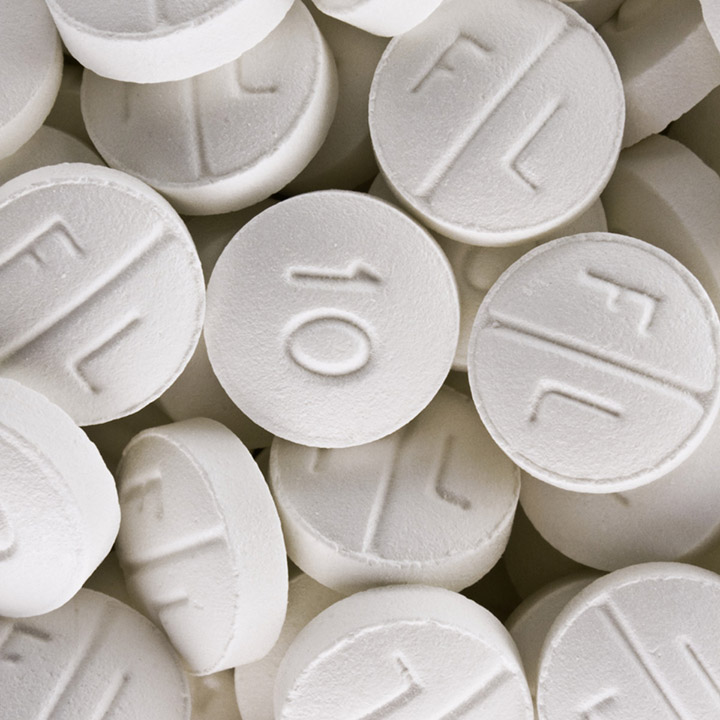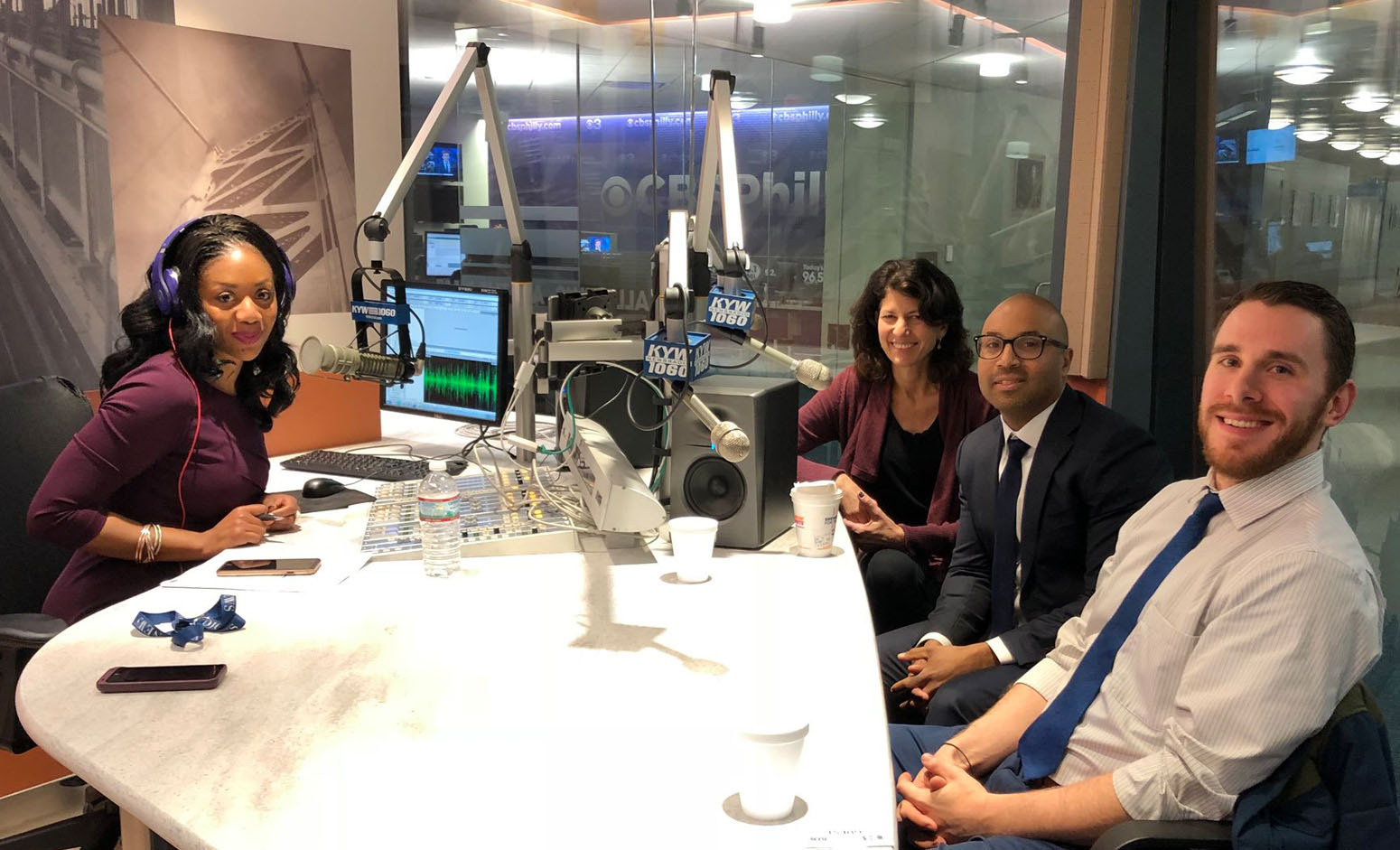
You hit the gym, eat well (most of the time) and get plenty of sleep. Whether you think about it or not, you’re doing wonders for your sexual fitness. There is tons of evidence that your healthy habits directly correlates to your bedroom performance — but they aren’t the only factors. The medications and supplements you take in particularly can have negative implications to your performance, and in some cases, cause short-term dysfunction. “Every medication, even herbal supplements and over-the-counter drugs, have some side effects,” says Frank Romanelli, professor and associate dean at the University of Kentucky’s College of Pharmacy. The good news? There’s always a different option to solve whatever ailment you face, so that your sexual routine maintains its same steam and stamina. Here’s your guide.
Antidepressants
If you’re going through a rough time and you’ve been prescribed an antidepressant (like Paxil, Prozac, Zoloft, and many more), you might be met with a less-than-enthused sexual experience. In fact, according to Sarah Lisovich from CIA Medical, you might not be in the mood at all: “Each of these drugs stimulate serotonin receptors while simultaneously decreasing dopamine and norepinephrine, neurotransmitters that alter and regulate mood. While this results in the body feeling calmer than usual, assisting with depression, the effect also weakens sexual desire and performance,” she says.
What to do instead: Lisovich says there are two options if you’re experiencing depression: add a drug to stimulate performance or try something herbal. “An alternative is to add a counteractive medication such as Viagra, that stimulates sexual arousal. If depression is mild to moderate, herbal supplements such as St. John’s Wort can act to treat depression more subtly without the side effects and without altering brain chemistry as drastically,” she says.
Blood Pressure Lowering Medications
If you’re suffering from a high blood pressure, your doctor may ask you to take a beta-blocker, or a drug that helps lower your pressure to a healthy level. But while this might be good for your heart, it might not be great for your, um, head, down there. “They may lead to altered blood flow to sexual organs and or interfere with other physiologic properties that are necessary for sexual health, like sustaining an erection,” Romanelli says.
What to do instead: Being able to perform sexually is not only a big part of your life, but also your relationship and happiness level. But high blood pressure can be life-threatening. Romanelli says there are several varieties of medicine you can try, and first and foremost, it’s important to keep an open mind as you discuss your options with your doctor: “Being able to swap out these medications has to be balanced with what options the patient has, while also being able to deal with a potential set of new adverse effects,” he says.
Sudafed
So you’ve got a cold and you’ve been taking some over-the-counter drugs to get over it. You’re in the mood because your temperature is finally down, but so is your guy. Why? Paul R. Gittens, MD says your cold medicine is to blame: “Sudafed, or any cold medication that has the active ingredient Pseudoephedrine leads to constriction of the penile vessels and erectile dysfunction,” he notes.
What to do instead: If your symptoms aren’t super intense, you can try home remedies to overcome your coughing and sneezing fits, but your girlfriend or wife probably isn’t dying to take off her clothes when you have a snotty nose. Once you’re off the cold medicine for a few days, your performance will go back to normal and you’ll both have a better time than you would in a bed of dirty tissues.
Antihistamines
If you suffer from heartburn, itching, or allergies, you might reach for an antihistamine to soothe your symptoms. They can get rid of any type of hay fever or decrease how much you’re sneezing or your super-watery eyes. But while they’re an easy go-to on your way back home from the office, Gittens warns that while they might solve some problems, they could cause others. He says they may trigger temporary ejaculation problems (such as having trouble orgasming) and potentially cause erectile dysfunction.
What to do instead: “Luckily, these drugs only calm the symptoms, body, and libido for around eight hours, leaving no lingering side effects,” Lisovich says. “To avoid frustration targeted toward your body, listen to what it is feeling and needing most in the moment. If your libido is not as up to speed as you were hoping, remember that it is only temporary.” So if you’re really in the mood to get it on tonight, skip your morning dose so you can perform.
Recreational Drugs
Though they might be legal in some parts of the world — and might be on the streets in the United States in the decades to come — marijuana, other recreational drugs, and heavy alcohol use don’t always help you be at your prime under the sheets. In fact, that cleverly called “whiskey dick” from college isn’t an exaggeration. Romanelli says: “These drugs cause impotence mainly because of alterations in the chemicals needed to sustain an erection and changes in blood flow.”
What to do instead: You might hate to hear it, but if you’re experiencing the inability to perform, it’s best to cut back on drugs and alcohol significantly, if not entirely.
Hormone Medications
If you’ve been diagnosed with low-testosterone levels, then you’re likely on a hormone medication to help raise your T. “Testosterone replacement can improve overall health and assist with erectile dysfunction, low libido, ejaculations issues, and difficulty with spontaneous sexual encounters,” Gittens explains. The only downfall? Some men may experience more frequent recurrence of these issues as a result of taking the medication. And in turn, you’ll end up taking them longer to maintain your levels.
What to do instead: While every case of low-T is different and you should discuss your best options with your doctor before going off any medications, Lisovich notes that sometimes lifestyle changes can make a big impact on your performance. “Introducing exercise, sleep, low levels of stress, and better eating can heighten libido without the addition of outside hormonal medication or treatment,” she says.
Opioid Painkillers
Accidents and medical issues can happen to anyone at anytime, and to recover from something traumatic, your doctor might prescribe you an opioid painkiller. Though it’s only meant to be taken temporarily while you heal, you might get frustrated with how it influences your life between the sheets. “Opioid painkillers reduce the body’s sensitivity and also lower testosterone levels, which lead to a lowered libido, and in men can even cause erectile dysfunction,” Lisovich says. And if you get caught up in taking painkillers too often (especially after you’ve recovered from your injury), Gittens says these problems can get even worse.
What to do instead: If you’re on painkillers for a short-term medical reason, Lisovich says to talk to your doctor about adding on another aid to help with performance while you finish your prescription. “To counteract painkillers, it is possible to take testosterone injections or another medication to boost libido such as Viagra,” she explains.









